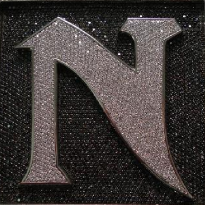 The other day I was talking to an N-word who owes me some M-word.
The other day I was talking to an N-word who owes me some M-word.
“N-word,” I said. “Pay me my M-word or I’ll put my F-word in your A-word.”
“N-word, please,” he replied. “I’ll pay you your M-word whenever the H-word I feel like it.”
I looked at him and said, “Don’t play with me, N-word. I’m telling you for the last T-word; pay me my M-word or I’ll F-word you up.”
“Alright, N-word,” he said. “No need to get V-word. I’ll call my S-word and see if she will L-word me some M-word to pay your A-word back.”
He took out his P-word and put it to his E-word. “Hey, Sharon,” he said. “This N-word is going to F-word me up if I don’t pay him his M-word. Can you L-word me some M-word?”
I looked at him, thinking, this N-word is full of S-word.
He took his P-word away from his E-word and put it back into his other P-word. “Alright, N-word,” he said. “My S-word said she’ll L-word me some M-word when she gets her C-word from her J-word at the end of the W-word.”
“Alright, N-word,” I said. “Don’t make me come looking for your A-word.”
“Nah, N-word,” he replied. “You have my word-word.”
I wrote the above (fictional) narrative to express my ambivalence about the use of the so-called “N-word.”
My mixed feelings come about when I consider the importance of context, and whether the intent of a word is more important than the word itself. I omitted key words from my story, yet most people can determine the intent based on the context of someone owing me money.
So if someone uses or calls me the N-word, should I consider the intent with which, and the context in which, the word is used–or simply the word?
If I visit my old neighborhood and see a friend I hadn’t seen in a while, and he greets me with a handshake and a hug, and says, “What’s up, N-word, I haven’t seen you in years”–should I shun his embrace and have a ‘School Daze’ moment, like, “No, kind sir, I am not an N-word … and neither are you.”
He’d probably look at me like, “N-word, you crazy! How yo’ mama doing?”
I also know people who will have no part of the word. Most of them are older, and may have been called the epithet to be made to feel inferior. So voluntary submission to the word, from their perspective, seems asinine—which is understandable.
Yet, I’ve heard some of these same people call other people “MF’ers” or “S.O.B’s”—one suggesting incestuous relations, and the other suggesting someone is the offspring of a police dog. And when the irony is pointed out to these people, they start singing “negro spirituals.”
They’ll say something like, “I don’t really mean their mother is a police dog … it’s just a figure of speech.”
The same way someone who uses the N-word could say, they don’t really mean it as a term of “inferiority.”
I fall somewhere in the middle. I don’t think the history of the word should be ignored, but context is important.
Most people’s use of the word is habitual and void of historical connotation. Some try to extend that void to suggest the word is a ‘term of endearment.’ But that’s an exaggeration.
Because when someone says, “N-word, pay me my money—or else,” I don’t think their intent is endearment.
This age-old debate is far from resolved and will likely continue into the next millennia.
It reminds me of when I once asked an older gentleman what he thought of the word, and his response was, “I’m cool with it … but if you add the E-R, I’ma send you to the E.R.”
And that aspect of the debate is even more complicated.
Lesson Learned: Discussing the N-word … is harder than getting an N-word … to stop saying the N-word.




